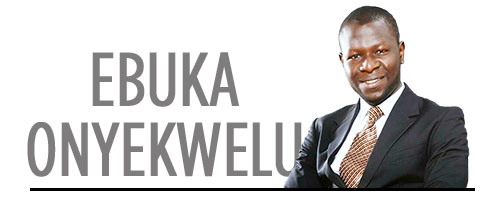“The government of Anambra State must now go beyond this pronouncement “ —Ebuka Onyekwelu
Last week, Anambra State Governor, Prof. Chukwuma Soludo pronounced free education to students across government-owned schools from primary school to Junior Secondary School – JSS 3. This pronouncement has triggered reactions, with many interrogating the governor’s intentions.

Looking at this pronouncement by Governor Soludo, one can say that it was rather a spontaneous announcement, than a detailed policy statement. This then might give credence to the fact that the free education pronounced by the governor might have been politically motivated. Although it can be argued that the benefits outweigh the politics associated with such populist or welfarist posturing. However, no matter anyone’s perception of the issue, the fact is undefeated that the offer serves the public good.
Moving beyond the pronouncement, the government has gone back to finetune and harmonize what the governor has declared with recourse to facts on the ground. It is popular knowledge that whatever is offered free, is actually not free in the real sense because someone is paying. So, if government says education is free, then, it means the government has to pay for it for the people to enjoy it without further payments. To buttress, schools don’t just charge money to parents. Every money paid is tagged to something. Details of the purpose of any fee paid are usually attached by schools. Therefore, government-owned schools do not go out of their way to demand money from parents or students. Part of the fees paid go back to the government as revenue or to the school as maintenance or running costs. Consequently, when the government abolishes all payments and declares free education, it implies that the government has foregone its revenue. However, those running and maintenance costs will still be required because the schools must pay their running expenses for daily academic activities or risk closing down. The government might let go of its revenue, but the schools cannot function without the required costs of maintenance. From the publication made by Christian Aburime, the Governor’s Press Secretary, it is obvious that the government has resolved to cater to these running costs. Now, there might be questions as to what these costs will take from the Anambra State Government as against how much parents paid before. There might also be questions regarding how the government will offset these costs considering that the fiscal year is almost coming to an end and the provisions were not made for these additional costs in the budget. But at least, I concede that the government will figure out how best to get that done.
Moving on, the most disturbing challenge with the free education pronounced by Governor Soludo is the assumption that those already within the school system are the major target of basic education subsidies. However, they are not. In fact, those already in the education net are those whose parents and guardians have plans for their education. Somehow, those who have kids in school always find a way to pay their fees. But, there are hundreds of school-age kids across the commercial towns of Nnewi, and Onitsha, and in places like Awka, Ekwulobia, and other villages throughout the state, whose parents or guardians have absolutely no plans of paying for their education. As a result, they are not in school. Some are involved in child labour, particularly hawking, or engaged in other commercial activities. There are households in Anambra that cannot afford any form of accommodation, so they live in uncompleted buildings or makeshift shanties in towns like Awka, Nnewi, and Onitsha. They cannot afford proper feeding. For those in this category, basic education is certainly a luxury. And kids from these households are the ones that ought to profit from this pronouncement to acquire basic education. It is however not clear what the government intends to do with people in this category or the strategy the government would use to bring them into the school system to enjoy free education.
Then, there are also concerns about the quality of education to be received free. Although the government has employed and deployed about five thousand teachers, there is still a heavy need for more teachers. An investigative report I carried out on Anambra schools and published earlier in 2023, revealed that major schools in the main cities in Anambra State are in desperate need of teachers of core arts and science subjects. In almost all cases, corps members are the ones in charge of these subjects. But again, recently, the government has hinted at its decision to employ an additional three thousand teachers, which will go a long way to bridging the learning gap in Anambra government schools. Yet, there are concerns about the learning environment for these students in Anambra State government-owned schools.
Therefore, the government of Anambra State led by Prof. Chukwuma Soludo must now go beyond it’s pronouncement of free education for students from primary to JSS 3 students in government schools. The government and stakeholders should decide in concrete and unambiguous terms, how to implement the policy. Especially, how to get the most vulnerable people into the Anambra school net, as a way of empowering the most disadvantaged households who otherwise would not have afforded it.
- World Immunization Week: Medical Practitioners, Others, Speak on the Benefits of Immunization - April 25, 2024
- Insecurity in Anambra: “We must focus our gaze within” – Uzu Okagbue - April 25, 2024
- Anambra Schoolgirls Win National ICT Competition - April 25, 2024

